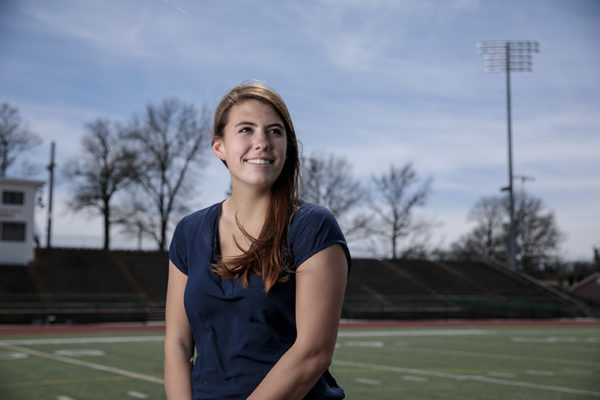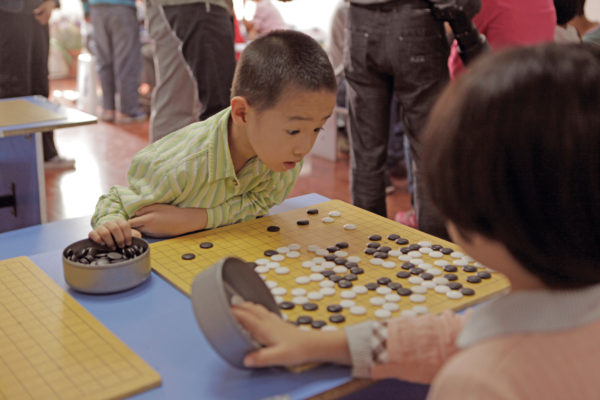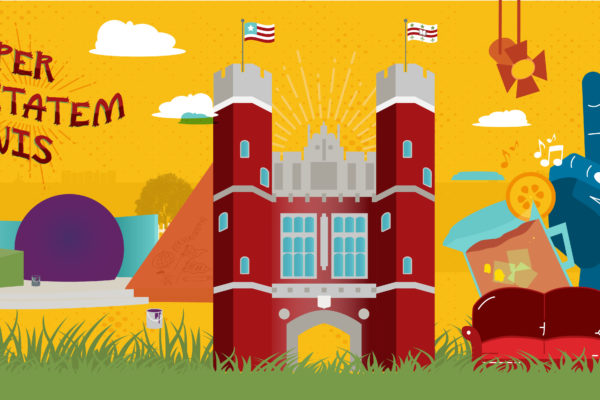Sam Coster was 23 when he was first visited by the blood dragon, a hallucination that would burst out of his chest or appear in rooms as he entered them. It was the fall of 2013, and Coster, who had graduated with a psychology degree in 2012, shrugged off the visions because he was so busy. Seven months earlier, Coster and his brother Seth had launched their own game-development studio, Butterscotch Shenanigans.
The two-man team produced mobile games at a rapid rate, usually in just 48 work days. Seth did the programming, and Sam created the art. But after producing two popular games, Quadropus Rampage and Towelfight 2, Sam developed a recurring fever, extreme lethargy and lumps on his chest. The vision of the blood dragon began to appear daily. Sensing something was deeply wrong, he decided to see a doctor.
The news was devastating: Coster had a rare, aggressive form of non-Hodgkin’s lymphoma, and it was already in its final stage. He didn’t know it at the time, but his chance of survival was a mere 7 percent. Coster started treatment immediately.
“This is not the last game I want to make before I die.”
Sam Coster remembers telling his brother
He also started to think about his work. The brothers had been creating a small, unambitious endless runner for mobile. Like Butterscotch’s other releases, it was purposefully silly and irreverent — and now held no interest for Coster.
“This is not the last game I want to make before I die,” he remembers telling his brother. Instead, he wanted to draw players into an imaginative universe and keep them spellbound for hours — to create a game so great that “we’d keep ourselves alive just to build it.” Seth agreed, and the two started working on a game tentatively titled F—k Cancer.
As Coster underwent aggressive chemotherapy, he began to look at the rest of his life the way he looked at game development, removing the unimportant to focus on work, family, his then-girlfriend (now wife) and close friends.
By December 2014, Coster had completed his cancer treatment and spent several months recuperating. The game — now called Crashlands — was moving along when Coster found a new lump. The cancer was back.
Coster entered “salvage” chemotherapy in early 2015, and he and Crashlands entered their darkest phases. Around this time, Coster’s oldest brother, Adam, joined Butterscotch Shenanigans. Despite Adam’s fresh perspective, Crashlands still didn’t differentiate itself from other popular crafting games such as Minecraft.
Plus, Coster had to undergo BEAM chemotherapy to “nuke” his immune system. Once Coster could no longer make blood on his own, he would get two stem-cell transplants, effectively giving him a new immune system that would defeat the cancer for good.
“I truly feel that I was pushed through the veil of life to the other side,” Coster says. “And my doctor held on to just my pinkie toe, and then dragged me back across.”
As Coster emerged from his treatment, Crashlands started to look up, too. The brothers figured that adding a story to their game would make it stand out. So in just a few weeks, Coster wrote the story of Flux, an interplanetary-delivery driver who crash lands on a strange planet, where she has to build shelter, craft weapons and tame strange creatures to survive.
By the end of 2015, the brothers were beta-testing Crashlands and preparing for a January 2016 launch. Coster went in for his post-transplant scan and got his first cancer-free verdict.
When Crashlands launched, Coster’s story attracted a lot of press, and the game received phenomenal reviews. In 10 days, Crashlands sold 131,000 units. It went on to be named a top game of 2016 by Time magazine and game of the year by Touch Arcade. It was even nominated for Best Mobile Game of 2016 at the DICE awards, the game industry’s equivalent to the Oscars. Coster was also named to Forbes Magazine’s 2018 30 Under 30 list.
With the success of Crashlands, the brothers were able to expand their studio and hire four more people. They are now working on their next game, ScuffleBuddies.
For Coster, the ordeal taught him one of life’s most important lessons, he says, “When you experience setback after setback, keep in mind this basic fact: If you’re not dead, you’re not done.”



Comments and respectful dialogue are encouraged, but content will be moderated. Please, no personal attacks, obscenity or profanity, selling of commercial products, or endorsements of political candidates or positions. We reserve the right to remove any inappropriate comments. We also cannot address individual medical concerns or provide medical advice in this forum.